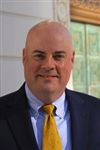Understand why juries award large and small damages and how to influence them to decide in your favor.
It’s a tricky situation: a plaintiff’s lawyer might feel good about the case for liability, but how to get the jurors to swallow their argument for damages? Equally tricky for the defense attorney who might realize that the verdict might declare some percentage of fault for their client, so how do we get jurors to keep the damages verdict low? Once we separate the issue of liability from damages, how the heck do human beings even think about damages and what should I do now? Join jury consultant Rich Matthews for an overview of the psychology and what research shows about how jurors think about damages, and a look at the tools that shape your panel’s perception of value . . . or, in a word, damages. This talk will apply to both plaintiff and defense lawyers.
Agenda
The Research and Psychology on Damages
- What Drives Decision-Making on Damages
- Socio-Political Climate, and Venue Influences on Damages
- Pre-Trial Research to Understand and Influence Your Case Strengths, Pitfalls, and Value
- How Jurors Use Anchoring, Attribution, and Pre-Sets to Create Ranges
- Personality Variables and Personal Experience That Affect Decisions
Tools: Using Cognitive Components to Influence Jury Awards
- Influence Through Anchoring
- Educating Jurors on Damages . . . and Decision-Making
- Strategic Communication of Your Damages Goals, Not Merely Tactical
Putting It All Together
- What to Look for in Voir Dire
- How to Discuss Damages in Your Opening Statement
- Q and A
Speakers

Richard P. Matthews,
Juryology- Principal trial consultant of Juryology, located in San Francisco
- Combines research with psychology with artistic craft to get the best results from jurors
- Expertise includes separating jury issues from the legal issues; crafting the themes and frames that will shape juror perception of a case; writing openings and closings like an actual human actually speaks to other actual humans; witness preparation; and all things related to jury selection from juror questionnaires and voir dire questions to exercising cause and peremptory challenges
- Innovated the use of focus group results at mediations and in negotiations to achieve better settlements in a shorter time than clients had experienced without them
- Achieved successful results for both plaintiffs and defendants in the civil world, and prosecutors and defendants in criminal cases
- Appeared on national television and in major publications offering commentary on high profile trials
- Serves on the California Bar’s Litigation Section’s Committee for comment on proposed revisions to California’s standard jury instructions, lending his juror expertise to improving the understandability and clarity of jury instructions
- J.D. degree, University of Oregon School of Law
- Can be contacted at Juryology.com, @Juryology, LinkedIn® Juryology, or Rich@Juryology.com
Who Should Attend
This program is primarily designed for attorneys. Other legal professionals may also benefit from attending.









